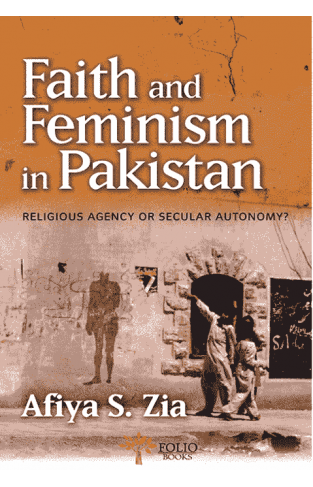Many commentators critique “the secular” and “Western feminism,” and the racialising backlash that accompanied the occupation of Muslim countries during the “War on Terror” military campaign launched by the U.S. government after the September 11 attacks in 2001. ËImplicit in many of these critical works is the suggestion that it is Western secular feminism that is the motivating driver and permanent collaborator-along with other feminists, secularists, and human rights activists in Muslim countries-that sustains the West’s actual and metaphorical “war on Islam and Muslims.” Faith and Feminism addresses this post-9/11 critical trope, and its implications for women’s movements in Muslim contexts. The relevance of secular feminist activism is illustrated with reference to some of the nation-wide, working-class women’s movements that have surged throughout Pakistan under religious militancy: polio vaccinators, health workers, politicians, peasants, and artists have been directly targeted-even assassinated-for their service and commitment to liberal ideals. Afiya Zia contends that Muslim women’s piety is no threat against the dominant political patriarchy, but their secular autonomy promises transformative changes for the population at large, and thereby effectively challenges Muslim male dominance. This book is essential reading for those interested in understanding the limits of Muslim women’s piety and the potential in their pursuit for secular autonomy and liberal freedoms. [Subject: Gender Studies, Muslim Studies, Islamic Studies, Middle East Studies]
FAITH AND FEMINISM IN PAKISTAN: RELIGIOUS AGENCY OR SECULAR AUTONOMY?
FAITH AND FEMINISM IN PAKISTAN: RELIGIOUS AGENCY OR SECULAR AUTONOMY?
By:
Publication Date:
Jul, 09 2018
Binding:
Paper Back
Availability :
In Stock
-
Rs 1,075.50
- Rs 1,195.00
- Ex Tax :Rs 1,075.50
- Price in loyalty points :920
You saved Rs 119.50.
Due to constant currency fluctuation, prices are subject to change with or without notice.












